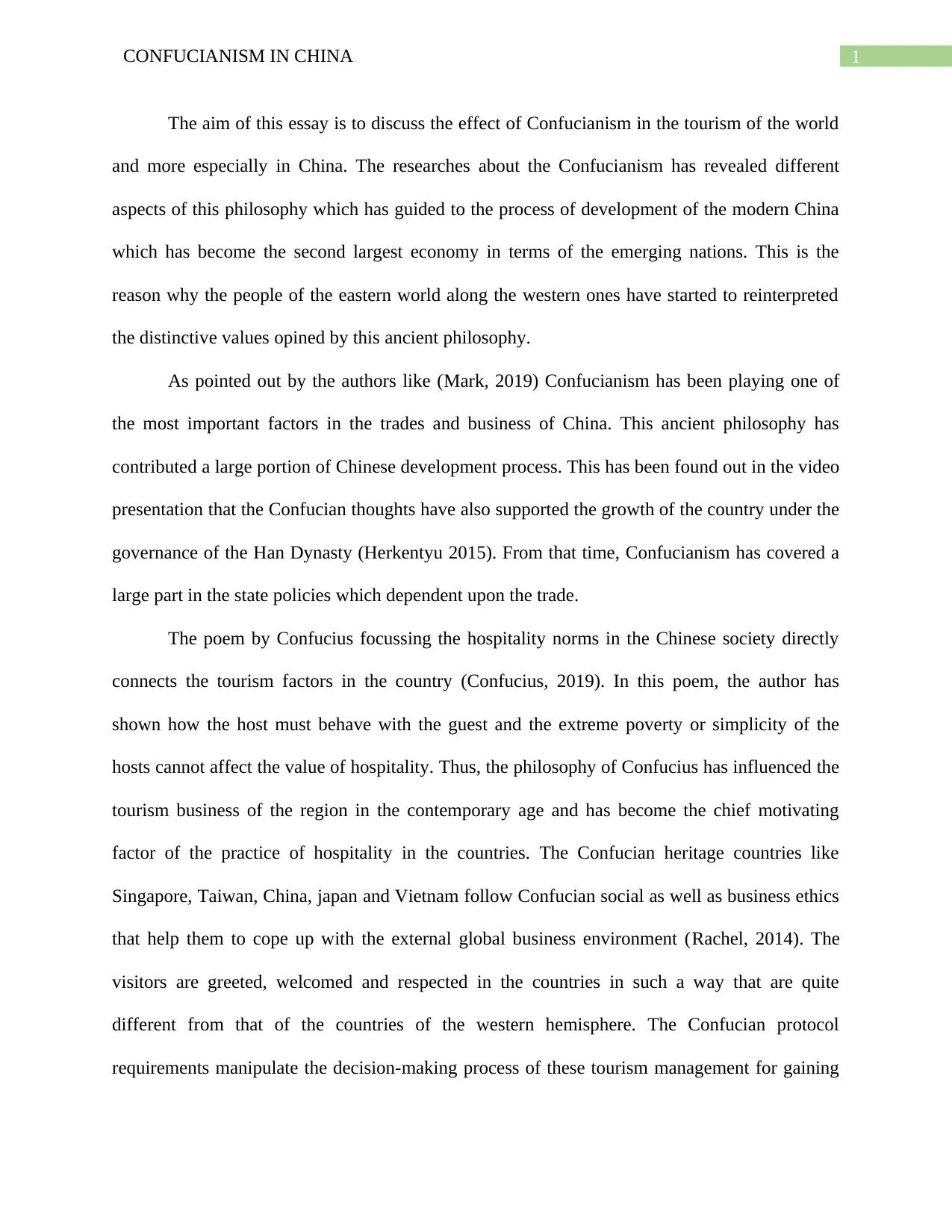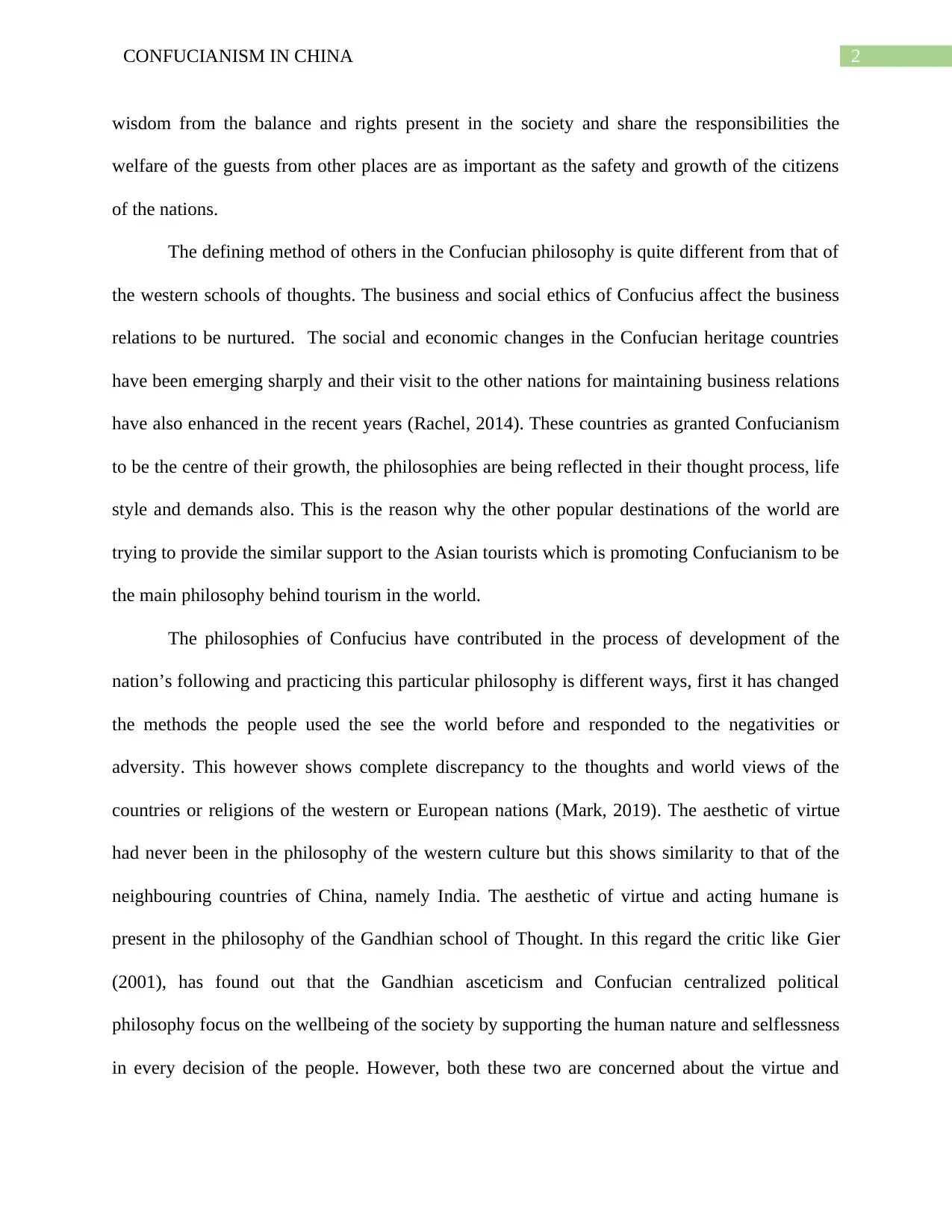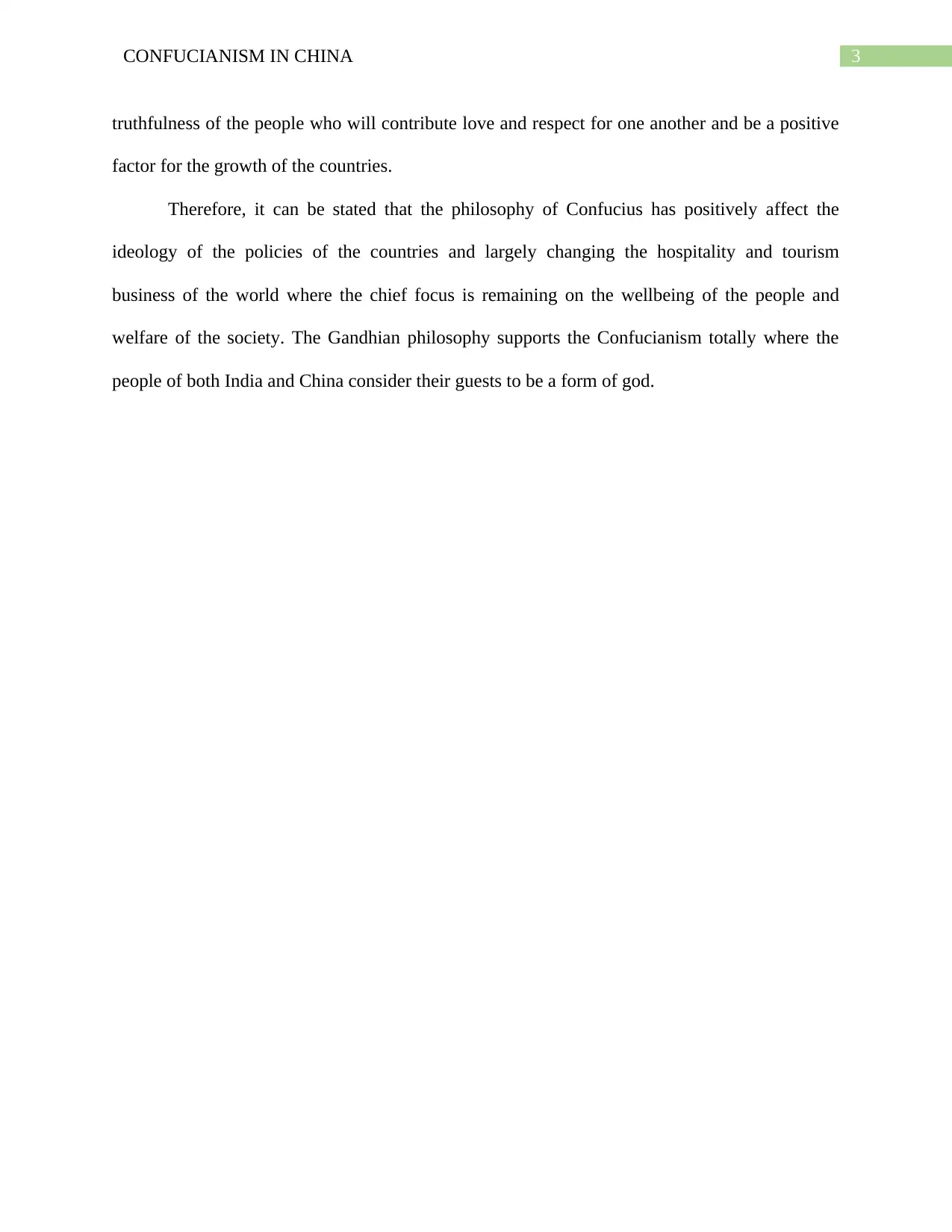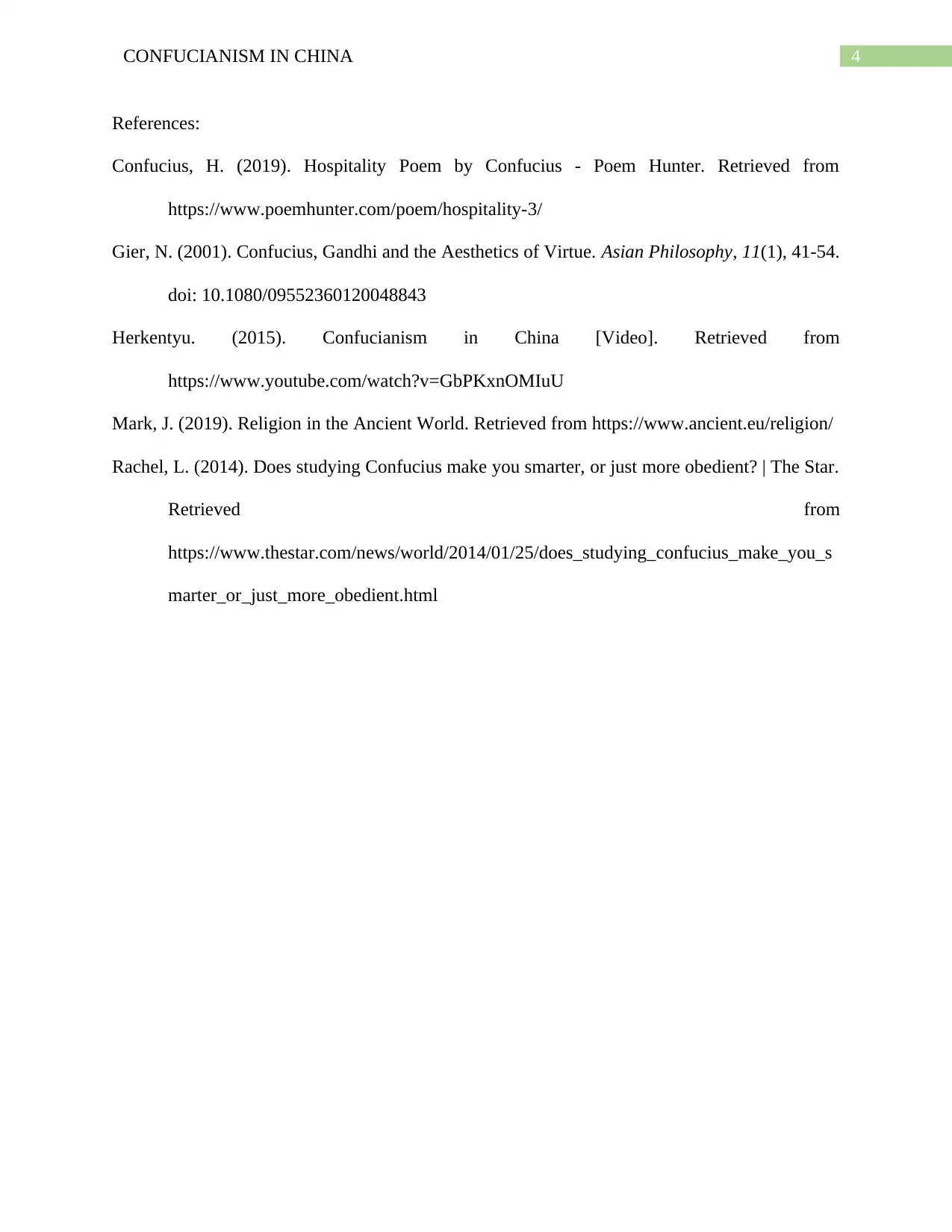Analyzing Confucianism's Effect on Tourism, Especially in China
VerifiedAdded on 2023/04/24
|5
|977
|278
Essay
AI Summary
This essay delves into the significant impact of Confucianism on global tourism, with a particular focus on its influence in China. The research explores how Confucian values have shaped Chinese business practices, social ethics, and hospitality norms, contributing to the country's development and its approach to welcoming visitors. The essay analyzes the role of Confucianism in fostering a unique tourism experience, where respect, hospitality, and ethical considerations are paramount. It also highlights the similarities between Confucian ethics and the Gandhian philosophy, emphasizing the importance of virtue, truthfulness, and the well-being of both hosts and guests. The study examines how Confucian heritage countries, such as Singapore, Taiwan, Japan, and Vietnam, have adopted Confucian social and business ethics to navigate the global business environment. The essay also references relevant academic sources to support its arguments, illustrating how Confucianism has become a key factor in the tourism industry by influencing hospitality practices and fostering a sense of responsibility toward guests and society.
1 out of 5












![[object Object]](/_next/static/media/star-bottom.7253800d.svg)